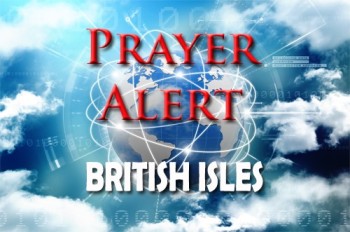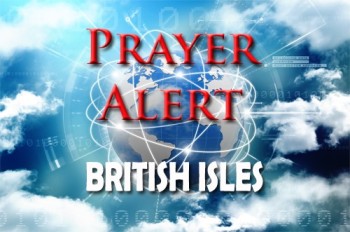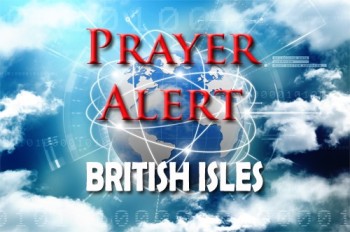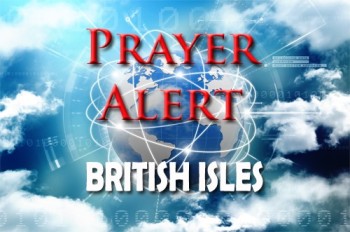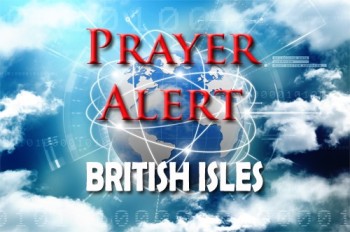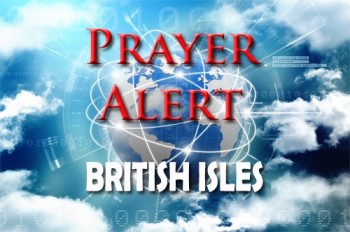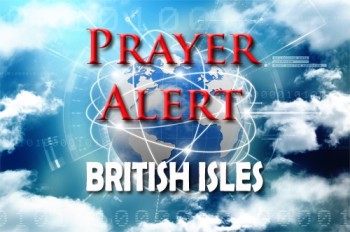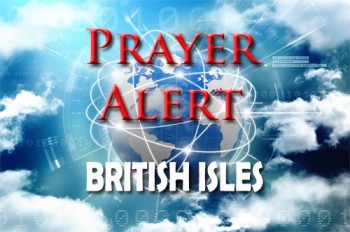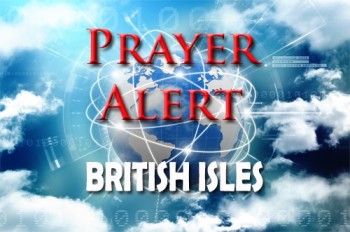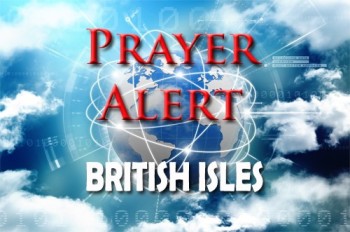Displaying items by tag: United Kingdom
Labour rebels offered major last-minute concession on welfare cut
Labour’s welfare reform bill was plunged into turmoil after the government dropped plans to tighten eligibility for PIP, one of its core cost-saving measures. Facing fierce backlash and the threat of a major rebellion, Disability minister Sir Stephen Timms announced that changes to PIP would be delayed pending a full review, co-produced with disabled people. The last-minute concession has caused confusion among MPs, leaving uncertainty over the bill’s financial viability. Despite earlier compromises, numerous Labour MPs remain opposed, warning the reforms could deepen poverty and harm disabled people. Emotional speeches in Parliament underscored divisions, with some MPs moved to tears as they denounced the bill as unjust. Critics argue the concessions feel rushed and insufficient, while government ministers insist reforms are vital to sustain the welfare system. Poverty impact assessments indicate that even with changes, around 150,000 more people could be pushed into poverty by 2030. The fate of the bill remains uncertain as further votes loom and disquiet grows within Labour ranks.
Prosecutors consider more charges against Lucy Letby
Prosecutors are considering bringing further charges against Lucy Letby, the former neonatal nurse already serving fifteen whole-life sentences for murdering seven babies and attempting to murder seven more between 2015 and 2016 at the Countess of Chester Hospital. The Crown Prosecution Service confirmed it has received a full file of evidence from Cheshire Police regarding additional deaths and non-fatal collapses of infants at both the hospitals where Letby had placements in 2012 and 2015. Meanwhile, three former senior managers at the Countess of Chester have been arrested on suspicion of gross negligence manslaughter after a separate investigation into systemic failures at the hospital. A public inquiry into how Letby was able to commit her crimes continues, with its final report expected early next year. Her legal team maintains her innocence, citing international medical experts who attribute the babies’ deaths to poor medical care and natural causes. The Criminal Cases Review Commission is reviewing her convictions for potential miscarriage of justice.
BBC chief ‘appalled’ by anti-IDF chants
BBC director-general Tim Davie has told Jewish staff he is 'appalled' by anti-IDF chants during punk band Bob Vylan’s Glastonbury set, acknowledging 'deep upset' among employees. The band led some of the crowd in chanting 'Death to the IDF’, remarks Davie condemned as 'deeply offensive'. Though he attended the festival, the BBC’s livestream of the performance remained online for hours before removal, sparking criticism from staff, the Chief Rabbi, and government ministers. Culture secretary Lisa Nandy demanded rapid reforms, criticising the broadcaster’s handling of the incident and its earlier decision to withdraw a Gaza documentary linked to a Hamas official’s son. Meanwhile, over 400 figures, including BBC staff and prominent artists, signed an open letter accusing the BBC of failing to report critically on Israel’s actions and UK arms sales. The controversy adds to growing internal and external scrutiny of the BBC’s leadership and editorial decisions. Davie insists that there is no place for antisemitism at the BBC.
UK must ‘actively prepare’ for a war on home soil
The UK’s newly released National Security Strategy warns that the nation must actively prepare for potential warfare on home soil. Citing escalating global instability, including threats from Iran and the ongoing war in Ukraine, it calls for 'national resilience exercises' involving the public, businesses, and academia, aiming to build preparedness against cyberattacks, sabotage, and hostile actions from states like Russia, Iran, and China. Cabinet minister Pat McFadden stressed the need for Britain to be 'clear-eyed and hard-edged' in facing these threats, while Keir Starmer pledged to increase defence spending to 5% of GDP by 2035. Critics, such as Priti Patel, argue that the government lacks a detailed roadmap for defence spending targets. Nonetheless, the strategy invokes the wartime spirit of national unity and determination, urging a whole-of-society response to future challenges and affirming optimism grounded in the resilience of the British people.
Starmer to retreat on benefit cuts to win over Labour rebels
Keir Starmer faces internal unrest over controversial welfare reforms, with up to 120 Labour MPs backing an amendment to block the legislation. The proposed bill would tighten eligibility for Personal Independence Payments (PIP) and limit sickness-related Universal Credit, changes critics say could harm thousands of vulnerable people. The Government insists the system is broken and must be reformed, aiming for royal assent by November to meet budget targets. Facing growing opposition, ministers are reportedly open to concessions, though details remain uncertain. Shadow ministers say the reforms should align with Labour values and protect the most vulnerable. Some officials suggest amendments may be considered later, while others expect the bill to pass narrowly without changes. With political pressure mounting and intense behind-the-scenes negotiations under way, the outcome may determine not only the fate of the reforms but also Starmer’s ability to hold his party together on sensitive social policy. Breaking news: the Government is set to do a U-turn on this policy. See
Reform would win most seats in General Election, says poll
A major new poll suggests that Nigel Farage’s Reform party would win the most seats if a general election were held today—securing 271 seats. This would mark a dramatic political shift, as support for the two traditional parties has plummeted, with Labour and the Conservatives together polling at just 41%. Labour would drop to 178 seats, while the Tories would fall to fourth place with only 46. The Liberal Democrats would gain nine seats, reaching 81, while the SNP, Greens, and Plaid Cymru would also increase their presence. Despite Reform's lead, no party would hold a majority, meaning coalition negotiations would be inevitable. The results point to a fragmented electorate and growing voter dissatisfaction with the political status quo. Analysts see this as a watershed moment in British politics, reflecting deep-seated frustrations and a yearning for radical change.
Man found guilty of murdering teenager and three attempted murders
Marcus Arduini Monzo, 37, has been found guilty of murdering 14-year-old Daniel Anjorin and three attempted murders during a horrific sword rampage in Hainault, north-east London. Suffering from a cannabis-induced psychosis, Monzo launched a twenty-minute spree in April 2024, beginning with driving his van into a pedestrian before attacking several victims with a 60cm samurai sword. Daniel, on his way to school, was brutally killed in what a witness described as a chilling act of 'delight’. Monzo also wounded two police officers and a couple in their home, where he demanded to know if they believed in God. Though he claimed memory loss and diminished responsibility, the court ruled that self-induced intoxication was no defence. The trial revealed Monzo’s disturbing online history, including far-right and conspiracy-related content. The jury also heard he had previously killed his pet cat before the attacks.
UK to expand nuclear deterrent with US jets
The UK is set to expand its nuclear capabilities by purchasing twelve F-35A fighter jets capable of carrying US-made B61 nuclear bombs, marking the largest upgrade to Britain’s deterrent since the Cold War. Keir Starmer announced the move at the NATO summit in the Hague, warning that peace can no longer be taken for granted amid rising global tensions. The jets, costing £80 million each, will operate as part of NATO’s nuclear mission and be stationed at RAF Marham. This reintroduces a nuclear role for the RAF, dormant since 1998, and complements the UK's Trident submarine-based system. The decision comes amid warnings of potential attacks on UK soil and a broader strategic shift to counter growing threats from Russia and China. Starmer emphasised national security as his government’s top priority, hinting that tax increases may follow to fund defence. NATO secretary-general Mark Rutte and Donald Trump welcomed the UK’s strengthened commitment.
UK chooses death from beginning to end
In a deeply consequential week for UK society, Parliament has voted in favour of two laws radically altering the nation’s stance on life. MPs voted 379 to 137 to decriminalise abortion, effectively allowing termination up to birth, and later backed assisted suicide legislation by 314 to 291. If approved by the House of Lords, both measures will bring sweeping changes to British life and law. Critics warn the abortion vote ignores root causes such as poverty, pressure, and lack of support for women, while the assisted suicide law may create a 'duty to die' among the vulnerable. The NHS will be compelled to rewrite its constitution, and the Hippocratic Oath’s principle of 'do no harm' is under threat. Efforts to amend the bill to protect those suffering depression or feeling burdensome were rejected. These decisions mark a further departure from Biblical values in British law, sparking calls for renewed Christian advocacy, compassion, and prayerful action as society drifts from its moral foundations. See
'A stain on our society': Yvette Cooper promises change after 'damning' grooming gang report
A damning report by Dame Louise Casey has revealed systemic failures across England and Wales in addressing grooming gangs that have sexually exploited thousands of children. Home Secretary Yvette Cooper responded with an unequivocal apology to victims and survivors, announcing a full national inquiry and promising the most comprehensive reforms ever taken by a UK government to combat child sexual exploitation. The Casey report highlights years of obfuscation by public institutions, with suspects often disproportionately of Asian heritage or with ethnicity data missing and agencies failing to act. Recommendations include broadening the legal definition of rape, improving data sharing, and initiating a nationally coordinated criminal investigation. A new national operation will be led by the National Crime Agency. Controversially, Cooper also announced that asylum seekers found guilty of grooming or sexual offences will be barred from claiming refuge in the UK. Criticisms remain over previous government inaction and political posturing, yet survivors and campaigners have welcomed the long-overdue steps. Casey called for definitive action, stating, “We must right the wrongs of the past.”
